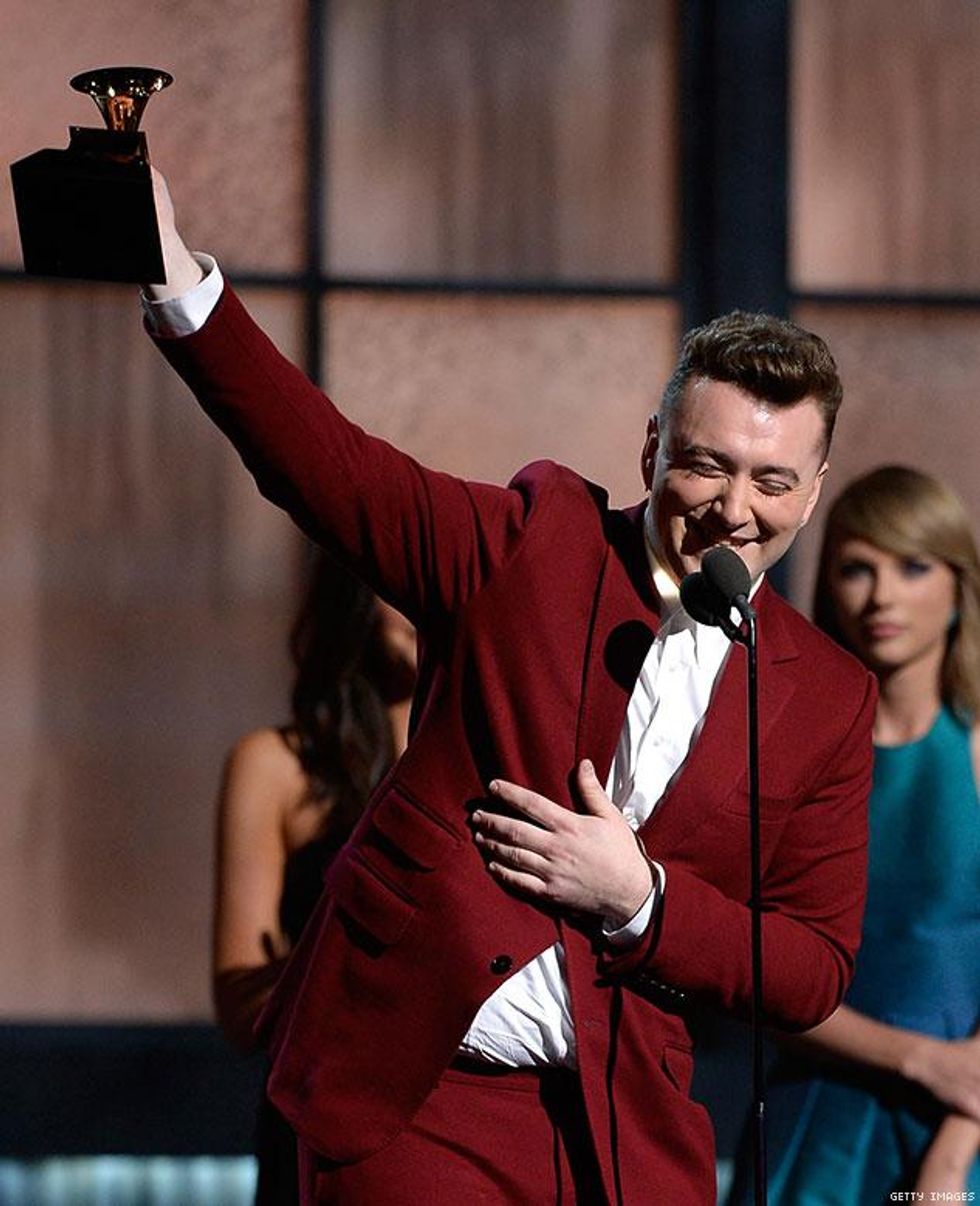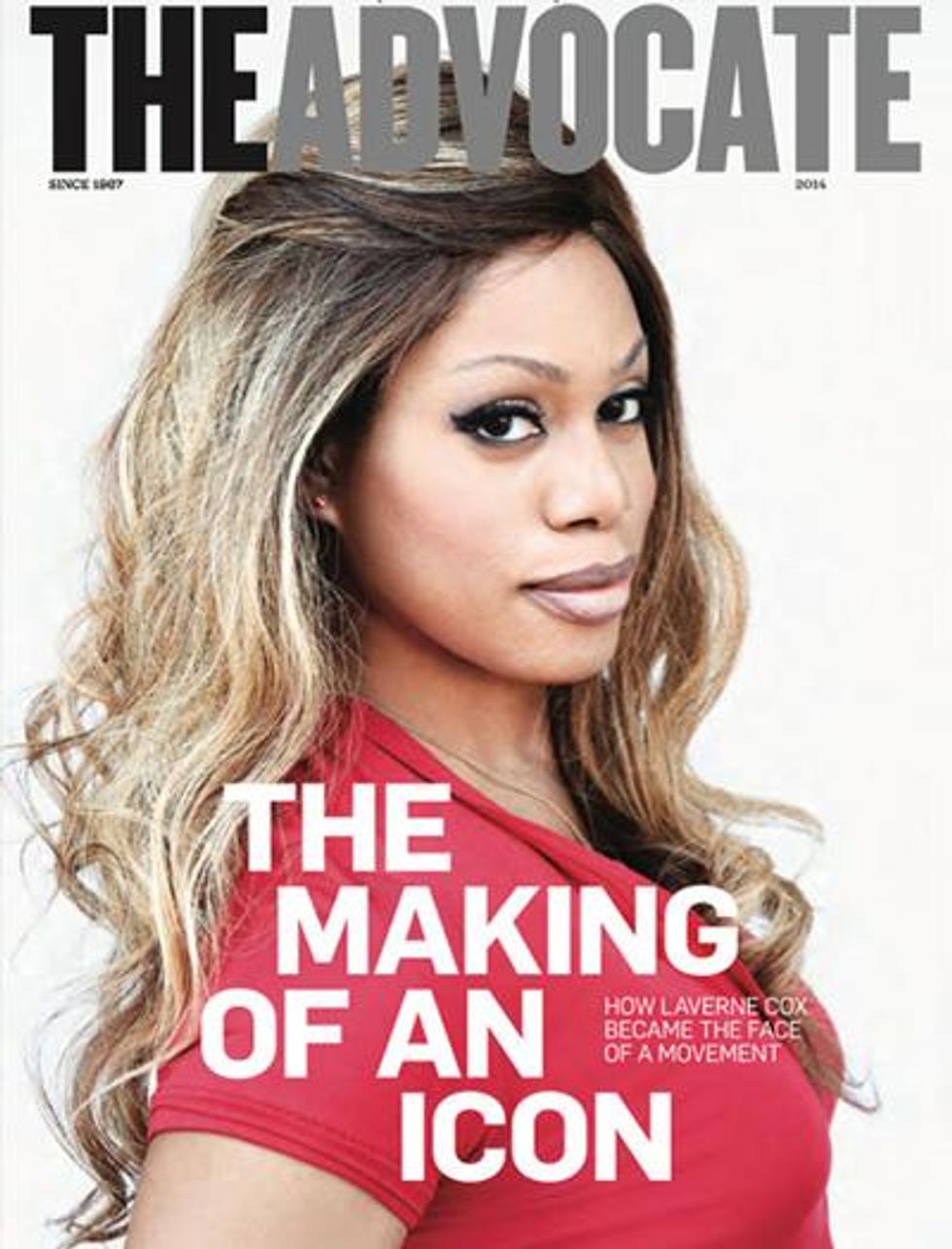
What it means when we identify someone as gay — and when they identify themselves as such.
February 26 2015 7:00 AM EST
By continuing to use our site, you agree to our Privacy Policy and Terms of Use.

What it means when we identify someone as gay — and when they identify themselves as such.
Earlier this month, Out magazine published an interview with Jack Falahee, who plays How to Get Away With Murder's openly gay character Connor Walsh. In it, the 25-year-old actor declined to talk about his real-life sexuality because it "seemed reductive."
"I don't think answering who I'm sleeping with accomplishes anything other than quenching the thirst of curiosity," he said.
It's not like he's the only person to have ever said this. I work in LGBT media; Falahee's point of view isn't new, among celebrities or everyday people.
The first time this attitude left a lasting impression that reverberated through my psyche was in 2013. 60 Minutes profiled gay teen science prodigy Jack Andraka regarding his work developing a new method to detect pancreatic cancer. Its piece completely scrubbed any mention of the fact that he was an out gay teen, so I wrote a piece about it. A wave of comments followed from readers: "I still cannot see how the young man's sexual orientation has anything to do with his accomplishments," wrote one reader, while another asked, "Unless, I'm having sex with him, why should I care?"
Since then, I've seen the same scenario play out several times when including a passing mention of how a person identifies in news stories, including a lively debate that recently ensued on our Facebook page after I reported on Lady Gaga's recent engagement to Taylor Kinney, noting that the singer is bisexual. "Why did you have to mention that she's bi?" asked one commenter. In another news post about Mother Monster days later, readers called the mention an "off-topic attempted pot-shot at her sexuality" and asked, "What has her sexuality got to do with anything?"
Falahee and our readers say a person's sexuality doesn't have anything to do with his or her accomplishments or talents. Agreed.
But there's a vital piece missing from any argument that poses it is unimportant to include how a person identifies -- because visibility matters.
Of course I completely understand resistance to LGBT people being pigeonholed as LGBT first and an artist, athlete, politician, or anything else second. But there's a difference between being referred to as an LGBT person and a person who happens to be LGBT. Including how we identify doesn't necessarily overshadow our accomplishments or talents. However, it does fight negative stereotypes by providing solid examples that queer people come from all walks of life and can accomplish anything our heterosexual and cisgender counterparts can. By negatively reacting to the inclusion of how a person identifies -- or refusing to answer at all -- we run the risk of entering a new closeted age; one where queer youth learn that proudly proclaiming who they are is "reductive" and there's no need to come out because it "shoudn't matter."
Except it does matter.

I left that night thinking back to the first time I ever saw another gay teen on television when I was 16 years old and the positive impact it had on my own life. I thought about the thousands of LGBT youth who were watching Sam Smith that night, and I wondered if young people like Leelah Alcorn, Carlos Vigil, Jamey Rodemeyer, Josh Pacheco, and Tyler Clementi would have felt there were alternative options to taking their own lives if they had seen more images like the one Smith provides.
Of course Smith isn't the only out celebrity who has become a beacon of hope for LGBT people everywhere by publicly embracing who he is. Ellen DeGeneres, George Takei, Neil Patrick Harris, Laverne Cox, Matt Bomer, Ian McKellen, Jason Collins, Anna Paquin, Brittney Griner, Robin Roberts, Jack Andraka, RuPaul, and yes, Lady Gaga are among the many people who send the same message each time they include how they identify as just another adjective to describe who they are.
But even with the growing number of out people in high-profile positions, the moments of visibility they provide are a small fraction when compared to the millions of heteronormative images LGBT people are bombarded with every day. And until that disparity is corrected, visibility absolutely still matters.
While LGBT youth are still committing suicide because they feel alone and ashamed of who they are -- visibility still matters.
While trans women are being murdered in the streets and it goes largely unreported -- visibility still matters.
While we battle for marriage equality in every state and country around the globe -- visibility still matters.
While LGBT people are being hunted, beaten, and jailed in countries like Russia, Egypt, and Uganda -- visibility still matters.
While bi erasure continues -- visibility still matters.
While stigma allows gay and bisexual men to contract HIV at alarmingly high rates for decades because we don't talk about it enough -- visibility still matters.
While so-called reparative therapy is practiced -- visibility still matters.
While churches preach that being gay is a sin -- visibility still matters.
While you can be fired today in 29 states for who you love -- visibility still matters.
While people believe they can treat you like you are less of a person because of who you are -- visibility still matters.

No, being LGBT shouldn't make a difference in how we pursue our dreams, our talents, or our ability to do a job. However, it also shouldn't make a difference when it's a part of the conversation. Because the battle for LGBT equality won't be won when we allow ourselves to be invisible. Being invisible or allowing people to misgender us or letting others tell us that our sexuality doesn't need to be "flaunted" didn't get us to where we are. Omitting our identities because we're told it's "reductive" or "doesn't matter" didn't get us marriage equality or end "don't ask, don't tell." Instead, true acceptance and equality will be won when being gay is a characteristic that can be mentioned every time and no one bats an eye.
JASE PEEPLES is The Advocate's entertainment editor and a contributor for Out and Gay.net. He lives in Los Angeles. Follow him on Twitter @JasePeeples
Charlie Kirk DID say stoning gay people was the 'perfect law' — and these other heinous quotes